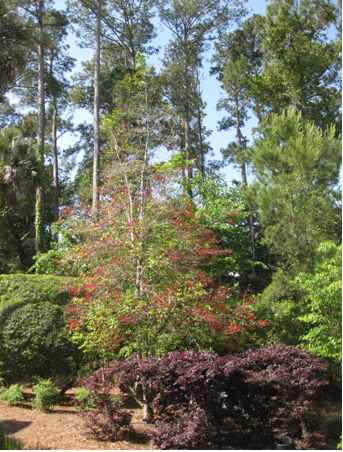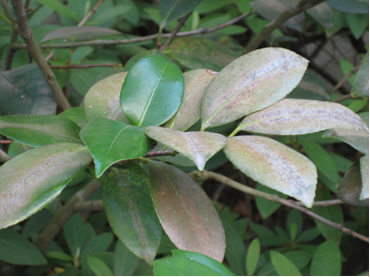Story by Rawson Services Editor / May 21, 2016



Plants with a heavy infestation of Southern Red Mites are more prone to diseases and insect borers.
Once the mites have been managed, it is important to restore the plant’s vigor through supplemental nutrition. A specially-tailored organic program from Rawson Services includes macro/micronutrients and beneficial soil microbes. This fertilization treatment helps trees recover from insect and mite infestations. Natural fertilizer applications boost the immunity of the plant to help it recover from the infestation. A full canopy can be restored much more quickly with a good fertilization program.
Tree care articles by Rawson Services’ partner www.scouthort.com
The best tree service and the nicest people in Charleston.
Great service! Randy and the team called ahead to schedule, showed up right on time and did an amazing job. Thanks Rawson!
Task was to cut down and remove huge six foot diameter live oak that had split to the roots and half the tree had hit the ground. Randy and his crew finished most of the job on the first day and cleaned up the remainder the next day. Unbelievably professional and competent crew with top-notch equipment. I recommend his service without qualification.
The Rawson crew is professional, quick and clean. We had them remove four large diseased oaks that were threatening structures on our property. They arrived on time and got right to work on the intricate project.
I had a variety of tree pruning that needed to be done surrounding my home and next to my driveway. Randy and his crew were prompt, courteous and performed expert work around the property. They cleaned up nicely and the entire service was A+. Serious pros.
You should only use a tree company with current, valid general liability and workers compensation insurance.
Learn MoreRawson's crew is trained, uniformed, focused and courteous at all times. We use state-of-the-art equipment and focus on safety on every job.
Our Services
Locally owned & operated by certified arborist.